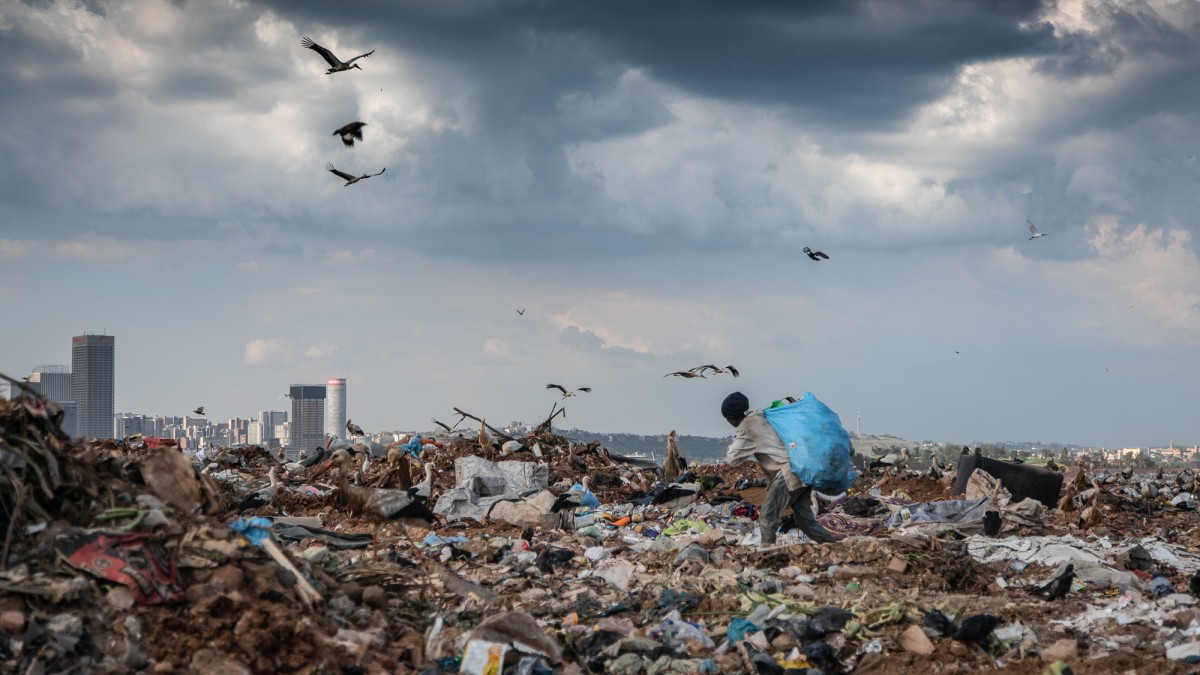Providing climate justice for marginalised groups in the implementation of the UN Global Plastics Treaty in Brazil
Start date
07 November 2024End date
OngoingOverview
Plastic is convenient, durable and highly adaptable but the way we currently use and dispose of it is unsustainable. Every micron of plastic ever manufactured still exists today, be it as solid waste, airborne pollution, microplastics and nanoplastics or in recycled products, and plastic production continues to increase (Ritchie et al., 2023).
UNEA Resolution 5/14, (March 2022) calls for an international legally binding instrument on plastic pollution for implementation beginning 2025. How the treaty will work in practice is hotly contested by stakeholders ranging from powerful coalitions of plastic producers to marginalised groups and poorer countries fighting for their right to a healthy environment.
Brazil is both a globally significant producer of plastic waste and home to some of the planet’s most crucial endangered ecosystems (Alencar et al., 2023). Funded by the UKRI Global Talent Exchange pilot scheme, our project targets the critical period when Brazil must decide how to apply the UN plastics treaty, promoting equitable representation for all.
Aims and objectives
- To learn from the conflicts of interests between key stakeholder groups in the negotiation of the UN plastic treaty and use those lessons to help ensure the needs and voices of marginalised stakeholder groups in Brazil are heard, thereby protecting climate justice.
- To empower early career researchers from the University of Surrey and the University of São Paulo to address complex environmental challenges collaboratively.

Team

Project Lead
Dr Matthew Peacock
Research Fellow
Biography
My first degree was in English Literature followed by a conversion degree in Psychology, leading to MScs in Research Methods and Applied Social Psychology and eventually a PhD focused on the Psychology of creative processes. I have since been building experience in research work, specialising in qualitative research methods and investigating topics as diverse as Food Labelling, Responsible Research and Innovation, ethics in social care, adoption of mobile health devices and marine plastic pollution. The bulk of my time is now devoted to exploring the world of non-medical prescribing, in particular amongst dietitians and radiographers.

Project co-lead (International)
Dr Rylanneive Teixeira
Postdoctoral Researcher, University of Sao Paulo

Team member and University of São Paulo liaison
Professor Sylmara Goncalves-Dias
Professora Associada

Team member and University of Surrey liaison
Professor Rosalind Malcolm
Professor of Law, Director of Environmental Regulatory Research Group (ERRG)
Biography
I am an environmental lawyer and I specialise in looking at the ways law can be used to protect the environment. Recently I have been working on the 'wicked problem' of the polluting waste from plastics and how a circular economy might help to stop the problem of waste. So I look at laws around the ecodesign of products and how they can be implemented to stop the production of waste and pollution. I look at the whole governance frameworks for environmental law including not just the legislation but policy, implementation, enforcement and compliance as well as the impact of property rights. I have been working on the rights to water and sanitation and how they can be used to ensure a decent standard of living for people especially in developing countries. I believe that we will not solve the problem of the degradation of the earth unless we work across disciplines seeking solutions together so I specialise in multidisciplinary research working with social and natural scientists and engineers.
I am the Director of the Environmental Regulatory Research Group (http://www.surrey.ac.uk/errg/) which is a research grouping of individuals and organisations engaged in research, teaching and consultancy into environmental regulation, compliance and enforcement and is part of the Surrey Centre for International and Environmental Law.
I am an associate member of the Centre for Environmental Strategy at the University of Surrey and I also practice as a barrister from Guildford Chambers.

Researcher providing Brazil-based research support
Isabela Ribeiro B. de Carvalho
PhD student
